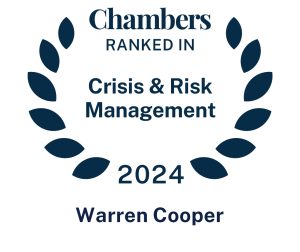You can’t plan for a crisis. That’s what makes it a crisis, after all. However, you can do certain tasks to prepare for one – even if you can’t anticipate what the nature of the crisis will be. One of the most important tasks is to establish a relationship with the media before a crisis hits.
Consider this example:
Your business just got hit by an ugly rumor on social media. A news reporter is calling for comment. Your reputation and profits are on the line. Silence here is not an option.
Fortunately, you know the reporter. In months past, you gave her a tour of your business and she has reached out to get your comments on business-related matters in the news. You have an “in” ¬– a way to quickly get your side of the story in front of your consumers and stakeholders via a professional journalist who can set the record straight.
However, you can’t wing your comments in any crisis. Developing a list of talking points before the call is essential. And, you have worked diligently to build a relationship with the reporter by employing the three Ts: Topic, Time, and Trust.
How to Use Topic, Time, & Trust to Build a Strong Media Relationship
-
- Topic
Review the reporter’s online portfolio to connect with the right professional. If you run a business, contact a business reporter. If you run an eatery, reach out to the food writer, and so forth. When you have a story that you think will interest a reporter, a short email followed by a phone call should get her attention.
Don’t pitch empty ideas (I know how to fix Washington!). You have about 30 seconds to get noticed. If your company is building a better mousetrap, tell the reporter up front. Once you connect, you can move the relationship forward over … - Time
Relationships take work. Just as you didn’t ask your spouse to marry you on the first date, you wouldn’t ask a reporter to “trust you” on your first meeting. Reporters crave information. However, that doesn’t make them your employees or friends. They write for their readers and viewers. For that reason, avoid the platitudes and lectures. Keep to the facts and focus on the reporter’s needs and goals. Doing so consistently over time enables you to build … - Trust
When you establish a viable two-way street of honest communication, reporters will seek you out as an expert on stories within your field. Your expert input will lead to more publicity, a higher public profile, and an enviable reputation. You may be asked questions that you don’t want to answer. It’s OK to say you don’t want to reveal your net income or privileged inside intel. However, consider sharing some information “off-the-record” or “on background,” that the reporter can’t use in the story itself but could help drive the reporting process. For example, you could give the reporter information that can inform narrative aspects of the story and add credibility and legitimacy to her reporting. If you aid her reputation as a reporter, she’ll turn to you with an open, trusting ear.
- Topic
Don’t Expect Something For Nothing
It’s a two-way street. The time you put into building trust will help inoculate you against one-sided stories that are fundamentally reputation assassinations.
Additionally, it’s hard for a reporter to be entirely callous when writing about someone who has been helpful and honest in the past. And it helps avoid reputation-slashing phrases like, “Could not be reached for comment,” which, of course, all readers understand as “The target of this story is hiding and must be guilty of the accusations.”
If an issue comes up that can harm your reputation, consider contacting a professional to help you navigate the troubled waters. That’s how the business owner at the beginning of this article was prepared to make the call to the reporter. We helped him plan, script, and practice his part.










